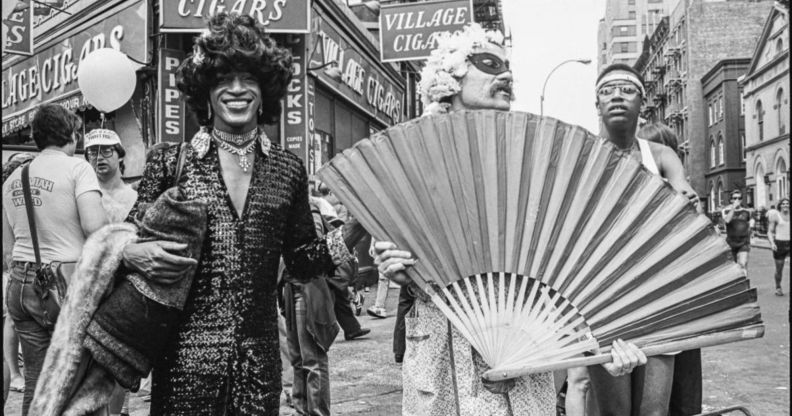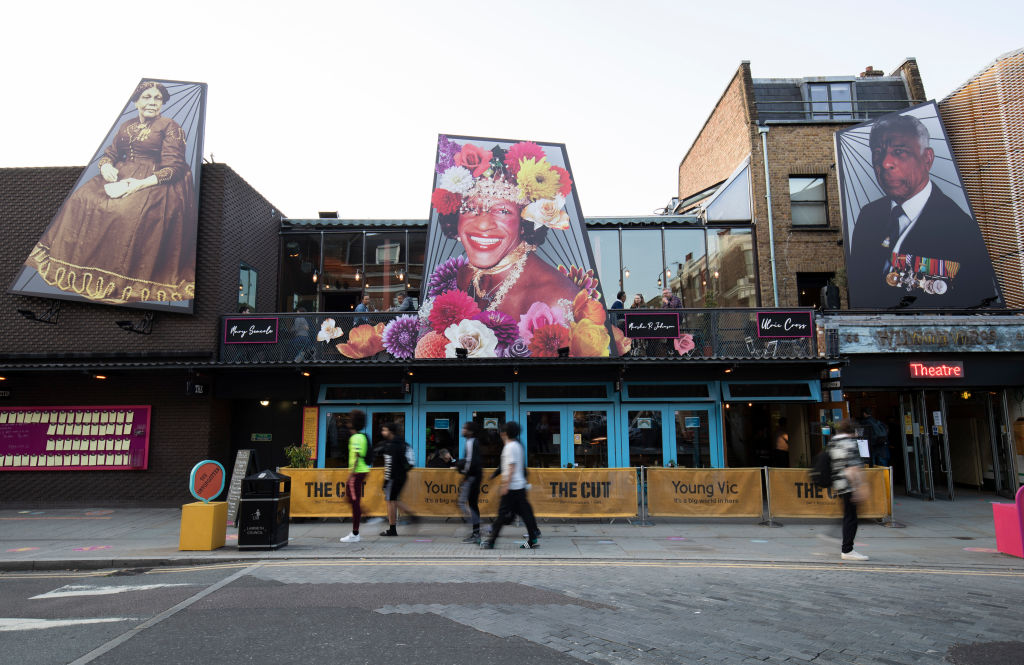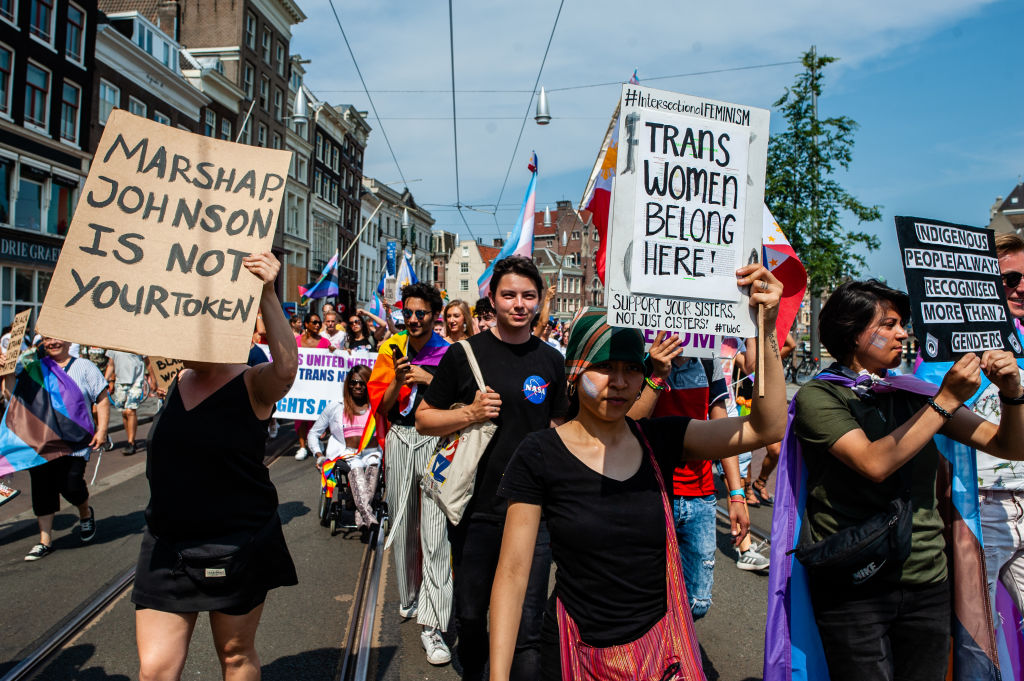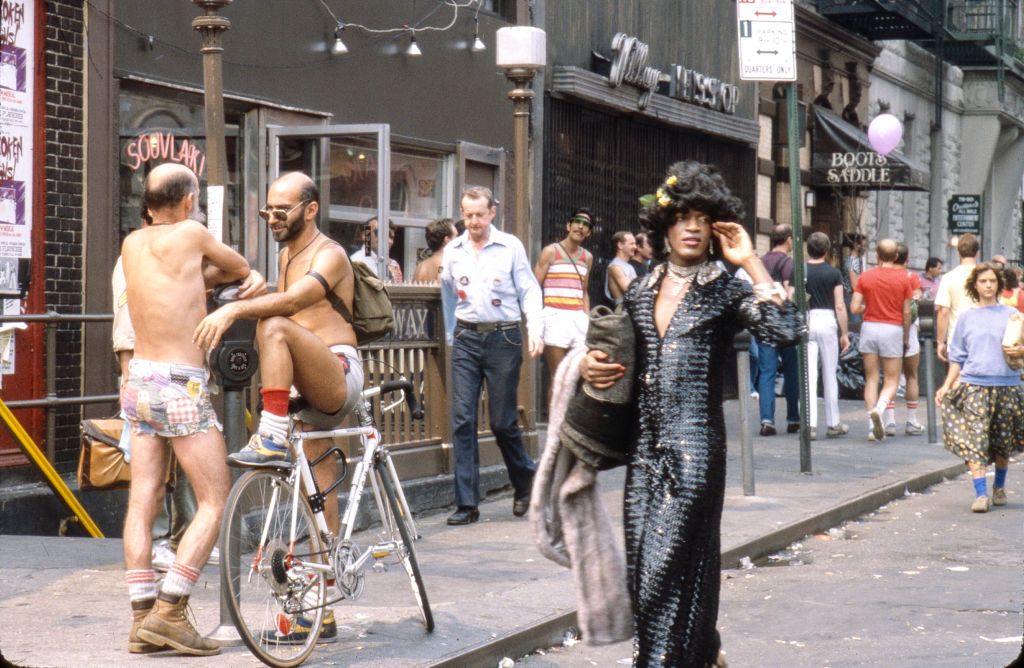How Marsha P Johnson is still teaching LGBTQ+ people important lessons 30 years after her death

Marsha P Johnson pictured at a march in the early ’70s. (Getty)
In the early hours of 28 June, 1969, Marsha P Johnson arrived at New York’s Stonewall Inn to discover all hell breaking loose.
The bar, one of the city’s most prominent queer spaces, had been raided by police earlier that night. The fightback that followed went down in history.
Over the course of that night, and the days that followed, a new kind of radical queer activism was born. Marsha P Johnson would go on to become one of its most notable figures.
By the time of her death in 1992, Johnson had proven unequivocally that she was the model of what activism could achieve. During her lifetime, she co-founded the Gay Liberation Front and also helped set up the radical activist group Street Transvestite Action Revolutionaries (STAR).
In her later years, Johnson dedicated much of her time to AIDS activism, fighting with ACT UP for the world to pay attention to the disease that was decimating her community.

Marsha P Johnson ‘didn’t back down’ in her fight for equality
It’s been 30 year since she died, but today, Johnson remains a towering figure in LGBTQ+ history. Elle Moxley, executive director of the Marsha P Johnson Institute, says her “hope and confidence” still serve as a source of inspiration for activists today who are following in her footsteps.
“Her boldness and unflinching presence are a lesson for us; we should all aspire to be like her,” Moxley tells PinkNews.
“She didn’t back down and was unapologetic about who she was. The issues that were important for Marsha are still the issues that are important to Black trans people today, even after 50 years.”
In the UK, February is LGBT History Month – a month-long celebration and acknowledgement of the queer people of yesteryear who have gotten us to where we are today.

Meanwhile, the United States is marking Black History Month. It’s a vital opportunity to celebrate Black history and stories – especially those that have been ignored or forgotten due to systemic racism.
For people like Moxley, it’s a chance to remember all the work Johnson did – and to reflect on how her legacy can continue to be used to make the world a better place for future generations.
“Black history is more than a history lesson; it’s a time to reflect and celebrate those that came before us,” Moxley says.
“By looking back, we can understand the unique journeys our ancestors face and use that knowledge as we forge our paths.
“This year, as we continue to be the targets of homophobic and hateful rhetoric and violence, my hope for the future of the Black transgender community is that our humanity and wholeness continue to not only be acknowledged, but celebrated.”

Few said it better than Marsha P Johnson herself – she was a powerful speaker who was well able to capture the essence of a movement in just a few words.
“History isn’t something you look back at and say it was inevitable,” she once said.
“It happens because people make decisions that are sometimes very impulsive and of the moment, but those moments are cumulative realities.”
As LGBT History Month draws to a close, Johnson’s life and legacy proves that change is possible – it just requires people to stand up and fight for it.
How did this story make you feel?

